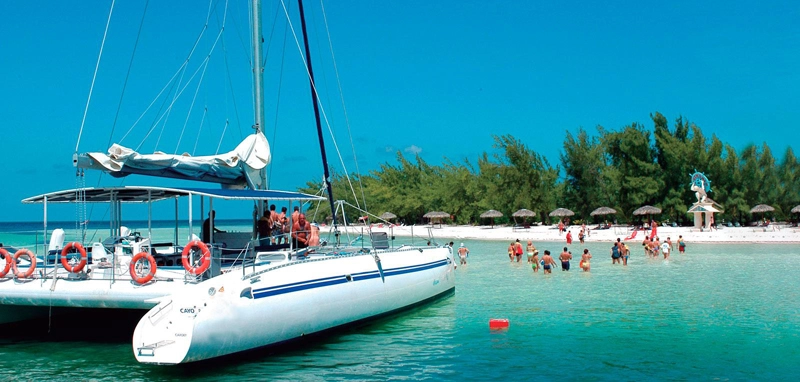When talking about tourism in the Caribbean Sea, and specifically Cuba, the focus is always on an uncontaminated geographical area. White sand beaches, crystal-clear blue waters, and the safety that travelers enjoy when they arrive in the largest of the Antilles, but this archipelago is much more.
Far from the advertising that presents Cuba as the land of the best rum, the creator of the bolero and son, the best Habano cigars, and the beautiful mulatto women, Cuba is much more.
When I stayed at hotels such as Memories Miramar, Sol Río de Oro, Playa Costa Verde, and Club Atlántico, among others. I spoke with several guests, including a Canadian-born tourist, a police officer by profession, who confessed to me that he prefers Cuba because it isn’t overrun by American tourists. My friend Sheila, also from the United States, reiterated this, arguing that she finds them boisterous and demanding. Something they don’t have in the United States.
Recently, the National Office of Statistics and Information (ONEI) confirmed the recovery of Cuba’s tourism industry, recording 1,174,888 international visitors through May 2024.
ONEI also confirmed that Canada maintained its status as the main source market. Followed by the Cuban community abroad, the United States, Russia, and the United Kingdom.
Cuba continues to suffer from the US economic, financial, and commercial blockade, whose extraterritorial laws are applied to citizens who choose Cuba for their vacations. If a Spaniard or Englishman, to cite two examples, travels to Cuba, they know they cannot enter the United States for a long time.
Despite all these restrictions imposed by the White House, travelers from Canada totaled 541,871 from January to May of this year. Stated the Onei source, who also listed Germany, France, Italy, Spain, and Mexico among the top sending countries.
Fortunately, I have known Canadians, Spaniards, Italians, and Portuguese who have chosen Cuba as a destination for more than 20 years, due to the safety of its society. Where there are no armed robberies, and the people are friendly to outsiders.
I remember giving a wallet to a Canadian gentleman who, through personal carelessness, left it on a lounge chair on Guardalavaca Beach, and I returned it to him with all his valuables. He wanted to thank me for the honest gesture, but I didn’t accept it because it was my duty. At that moment, a beautiful friendship was born between us, and his love for Cuba grew.
Time passed, and before Christmas, a woman named Yoana, the owner of a hostel in the city of Holguin, called me on my cell phone to pick up everything I needed for my Christmas Eve dinner. Also which Cuban Catholics and much of the population in this Caribbean region celebrate. The tourist I helped had bought it for me online.
Years have passed, and I haven’t heard from Paolo since. Perhaps he died during the COVID-19 pandemic, but his memory has been fond for me and my family. He is an example of how tourism also fosters bonds of friendship between the people and its visitors.
Returning to the statistics, Onei reports that in 2023, the so-called smokeless industry registered 50 percent growth compared to the previous year. But without reaching the tourist numbers achieved before the pandemic.
Tourists who come to Cuba always return because they are enchanted, not only by the sun and beaches, but also by the charm of an island where visitors don’t feel like foreigners.
Translated by Aliani Rojas Fernandez
- Happiness, Appreciating What You Have - 6 de February de 2026
- When eating pizza doesn’t lead to Rome - 18 de January de 2026
- The Fright of Tuesday 13th: Between Religion, History, and Tradition - 13 de January de 2026

